Tristan and Isolde
 for intense battle sequences and some sexuality.
for intense battle sequences and some sexuality.
Reviewed by: Michael Karounos
CONTRIBUTOR
| Moral Rating: | Average |
| Moviemaking Quality: |
|
| Primary Audience: | Adults Teens |
| Genre: | Romance Drama |
| Length: | 2 hr. |
| Year of Release: | 2006 |
| USA Release: |
January 13, 2006 (wide) |
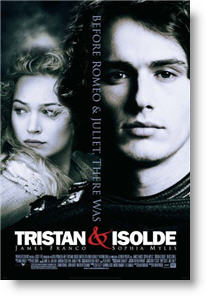

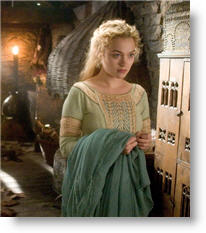

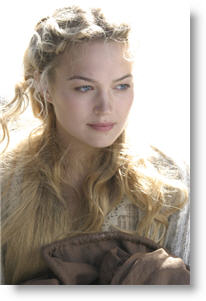
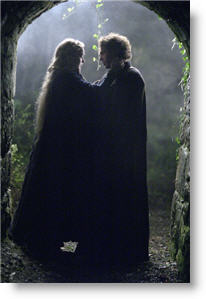
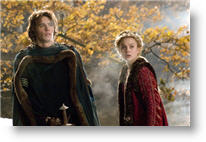
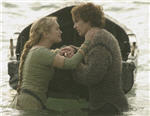
For a follower of Christ, what is LOVE—a feeling, an emotion, or an action?
What is true love and how do you know when you have found it?

Learn how to make your love the best it can be. Christian answers to questions about sex, marriage, sexual addictions, and more. Valuable resources for Christian couples, singles and pastors.
How can I deal with temptations? Answer
Should I save sex for marriage? Answer
How far is too far? What are the guidelines for dating relationships? Answer
What are the consequences of sexual immorality? Answer

Teens! Have questions? Find answers in our popular TeenQs section. Get answers to your questions about life, dating and much more.
| Featuring |
|---|
| James Franco, Sophia Myles, Rufus Sewell, Mark Strong |
| Director |
|
Kevin Reynolds |
| Producer |
| Ridley Scott, Tony Scott, Jim Lemley, Frank Hbner, John Hardy, Matthew Stillman, Lisa Ellzey, Giannina Facio, Moshe Diamant, Elie Samaha |
| Distributor |
“Before Romeo and Juliet, there was…”
Here’s what the distributor says about their film: “This longtime dream project of executive producer Ridley Scott explores the medieval legend of a princess and warrior’s love affair, which threatens to tear apart an uneasy peace between England and Ireland. A tale of epic battles, royal intrigue and a timeless, star-crossed passion.”
“My lords, if you would hear a high tale of love and of death, here is that of Tristan and Queen Iseult; how to their full joy, but to their sorrow also, they loved each other, and how at last, they died of that love together upon one day; she by him and he by her.”
So begins the 12th century tale of Tristan and Iseult. The movie opens with Irish warriors ambushing a meeting of the various tribes who were seeking to ally against the oppressive Irish king. King Mark’s wife is killed, as are Tristan’s father and mother. King Mark (Rufus Sewell) raises Tristan (James Franco) as his son and Tristan grows to be the most accomplished warrior in the small Cornish kingdom. The Irish continue to oppress the various tribes until Tristan kills Morholt, their greatest warrior, in combat. Unfortunately, Tristan is poisoned, appears to be dead, and is buried by being sent out onto the sea on a burning boat.
Somehow, the comatose Tristan survives the sea, the burning boat, and shipwrecks on the coast of Ireland. There, Iseult (Sophia Myles) discovers him and nurses him back to life with her knowledge of herbs. When he asks who she is, she deceives him. She doesn’t tell him that she’s the Irish king’s daughter and she doesn’t tell him her true name. These twin lies, which are not part of the original tale, become the catalyst for the tragic aspects of the story as Tristan later returns to Ireland to win Iseult for himself, and win the Irish princess for King Mark, only to discover that they are the same woman.
Iseult realizes her error and from that moment resigns herself to love two men. King Mark is her husband and a kind man; Tristan, she loves with all her heart. She is shown in bed making love to both which can’t help but make a Christian viewer uncomfortable. The film does a good job of portraying the nuance of her growing affection for King Mark, but this only makes her continuing passion for Tristan seem more dependent on sex than on love. This tension is the moral heart of the story, for Iseult is not as troubled by her double sex life as Tristan is.
She asks him, “If we lived in a place without duty would you live with me?” Tristan responds: “That place does not exist.”
Later Tristan tells her: “There are other things to live for: duty and honor.” Iseult responds: “Love is made by God. Ignore it and you suffer.”
In the end, Tristan tells her: “You were right. Life is greater than death. But love is greater than either.”
There are two problems with this scenario. The first is that the element of the love potion is omitted from the story. Consequently, their adulterous affair becomes a matter of sexual desire and not of fate. Second, Tristan becomes a hypocrite to his creed of “duty and honor.” He violates that chivalric code and betrays the man whom he loves as a father and who loves him as a son.
In the tale, Tristan and Iseult are victims. When they drink the potion, thinking it wine, they find “not wine… but Passion and Joy most sharp, and Anguish without end, and Death.” Brangien, the maid, tells them “the old Enemy has tricked us.”
But in the film, their love is predicated on sex. Neither a potion nor sexual desire is a good justification for adultery, but at least the first lends a gloss of helplessness to the characters. In the film, they are simply overgrown teenagers who are victims of their hormones. Minor as this may seem, it detracts from the tragic element of the story because they should refrain on principle as they are violating relationships with God, with the King, and with their own consciences. As they do not, the story becomes a costumed retelling of Crosby, Stills, Nash and Young’s old song “Love the One You’re With.”
The cinematography is stunning, Sophia Myles is beautiful and alluring, and the period details are convincing, but the story is disturbingly immoral. Iseult lies to Tristan, she lies to her husband, and she commits adultery. She argues against Tristan’s code of duty and honor and instead professes a metaphysics of temporal love, as when she quotes John Donne’s poem, “The Good-Morrow”:
Whatever dies, was not mix’d equally;
If our two loves be one, or, thou and I
Love so alike, that none do slacken, none can die.
Roger Ebert writes, “Sophia Myles plays Isolde as the daughter of a king, raised by the king’s rules, true to her own emotions but true, too, to her duty.” This is partly true in that she marries the Irish king. But what choice had she? More pertinent is the fact that Iseult has a choice not to commit adultery, but casts aside principle, marriage vows, and faith to follow her heart in the most hackneyed Disney tradition.
From a purely secular perspective, the movie is visually pretty, Sophia Myles is excellent as Isolde, and Rufus Sewell does a good job of portraying a conflicted King Mark. But for Christians the film poses the same problem that Isolde confronts: should we, in our love of entertainment, satisfy our own desires or should we adhere to a morality of principled behavior in all things? If we grow accustomed to condoning adultery on the screen between pretty people we may not be inclined to condemn it in life. At the risk of seeming both prudish and bookish, I think the price of admission is better spent reading Hillaire Belloc’s translation of The Romance of Tristan and Iseult.
Violence: Heavy / Profanity: None / Sex/Nudity: Moderate
See list of Relevant Issues—questions-and-answers.


Without Isolde having come into his life and selflessly helping and healing a stranger, Tristan probably never would have come to this beautiful conclusion. He loved Isolde. Fate just got in the way of a possible life together. It is tragic and beautiful. Ironically, Lord Marke helped to set Tristan and Isolde free. Has anyone opened your eyes lately and truly helped to set you free? Or are your eyes shut to the possibilities?? For me, I choose to learn from the experiences of others and thank them for their humanness. Without that, I remain self-absorbed and unsympathetic. This movie is real. And wow—it is PG-13! Thank you Fox Studios!!!
Excellent! / 5
Average / 4
The movie greatly shows loyality, pride (the good kind), self-sacrifice (by Tirstian, Isolde, and the king), and heroism. ½ of the theater I was in was all girls and the other ½ guys (date movie). Towards the end, …½ the theater was crying/sniffling. I personally wanted to shout out a battle cry. Once again, this movie is not for younger kids and is as close to R as you can get. I don’t remember any swearing, and the violence is realistic yet restrained (they don’t show the actual sword entering the bodies as you might see in “Braveheart” or “Gladiator”).
Offensive / 4
Offensive / 4
We did not finish the movie as a result of this flagrant offence. The movie would like us to feel sorry for them, as if they could not help their feelings. I now have read the entire review, which I am sorry I had not fully read beforehand. I agree with the reviewer’s assessment that their adulterous affair was predicated on sex and had no noble justification whatsoever. Had they not fornicated, or deceitfully hidden their fornication from everyone before Isold’s forced marraige, they would not have even been put into this “heartache” situation in the first place. It just shows the downward spiral of sin.
I realize that these characters are not Christians, and so we should not expect them to act otherwise. But for Christian viewers that desire to only watch movies that will not plant unholy thoughts and corrupt moral themes into the mind, yes, these Christians need to avoid this one!
Very Offensive / 4

My Ratings: Average / 5